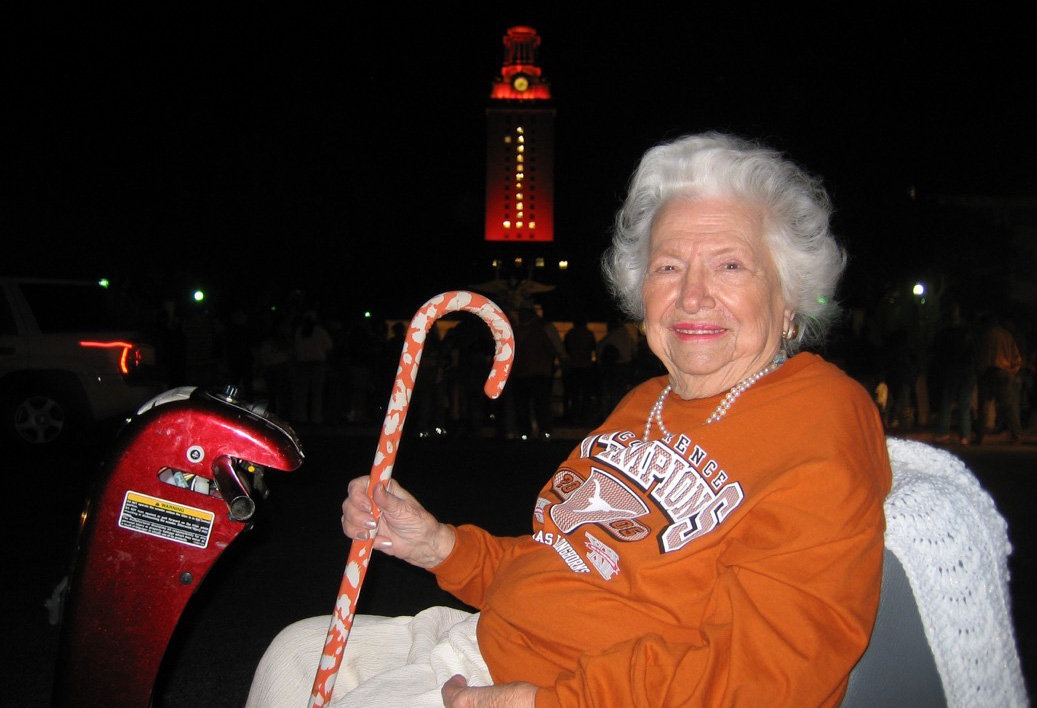The winning of women’s suffrage took over 70 years and three generations of extraordinary women spearheading one of the most successful political mobilization efforts in U.S. history. It was a scaling-Mt.-Everest-backwards-in-high-heels kind of accomplishment. After all, every one of the “deciders,” state legislators, members of Congress and one very important opponent — President Wilson — were men.
Lest anyone be deceived by photographs to think of the suffragist leaders as prim, always ladylike, permission-askers, get something straight: These were full-throttle “nasty” women willing to buck every norm and break the social-cultural china to bring about a revolution in women’s power.
This seismic victory is made even more personal for me by my own family history. One hundred years ago — just days after the 19th Amendment was finally adopted — my mother, Liz Carpenter, journalist, White House official and feminist leader was born on Sept. 1, 1920. I cannot help feeling that the confluence of these two events — the coming of suffrage and her birth — is no coincidence because feminism was embedded in her DNA. She hailed from a storied family of Texas pioneers, populated by strong, educated women who had for decades promoted an expanded role for women in public life, including their right to cast ballots. These were “women of grit,” as my mother liked to brag.
Her great-aunt Birdie Robertson Johnson was a born leader who founded a suffrage organization on her home turf in Texas, before continuing her suffrage efforts in the nation’s capital during the Wilson Administration. Birdie was well known in the Democratic Party and Washington power circles as a savvy political strategist. She leveraged her considerable intelligence and charm, riding to the U.S. Capitol in a carriage, dressed in white, to lobby members of Congress. Another great-aunt and Birdie’s sister, Imogene Robertson Gamel, joined the more radical suffragists — Alice Paul and members of the National Women’s Party — in demonstrations staged in front of the White House intended to shame President Wilson into lending his support for suffrage.
Inspired by her forbears and leveraging her Texas moxie, my mother made her mark professionally in what was still largely a man’s world, over a three-decade career in Washington, D.C., most famously, as staff director and press secretary to First Lady Lady Bird Johnson. The feminism that she had practiced by instinct all her life had become a high-voltage movement by 1971, when Betty Friedan recruited her to join Bella Abzug, Shirley Chisholm, Gloria Steinem and other feminist leaders in co-founding the National Women’s Political Caucus (NWPC), with a primary mission — getting more women elected to office. A new convert to activism, my mother was a gifted and witty speaker, able to galvanize women to either run themselves, work for women candidates, or lobby an issue.
From day one, adding an Equal Right Amendment to the U.S. Constitution was a Caucus goal. The visionary suffragist Alice Paul had written the text of the amendment in 1923, and it had been introduced in Congress every session since but to no avail. The NWPC helped break the logjam, and Congress sent the amendment onto the states for ratification in 1972.
My mother became one of the leading crusaders for adoption as co-chair of ERAmerica, but ultimately, the amendment fell three states short of its goal. After logging thousands of miles and putting every ounce of her formidable energy and political savvy into the fight over six years, the loss was hard to bear. Yet, mindful of the lengthy road to suffrage, she never lost hope that the ERA will eventually be adopted.
Progress in achieving our nation’s ideals has never been accomplished smoothly, or without set-backs, but it moves along a continuum, with generations of women passing the baton to the next. I’m proud my mother picked up the baton of our ancestors and carried it proudly across the nation in a marathon quest for equal rights that continues today. As I consider the 100th anniversary of her birth and the 19th Amendment, I envision her cheering the promising efforts currently underway to revive the ERA as well as the diverse rainbow of women who increasingly populate the Congress, statehouses and city halls. At the same time, I can sense her rage as she watches ongoing efforts to suppress the vote.
The linkage between the suffragists, participants in the women’s movement and today’s activists is clear. In fact, every generation of women stands on the shoulders of the ones that came before. So now that we have reached this hundred-year milestone, let us embrace their legacy, courage and vision as we make the kind of “good trouble” that can carry us over the finish line of full equality and unfettered universal suffrage.
Editor’s note: Thanks to the Liz Carpenter Lectureship, the Plan II Honors Program is able to bring some of the world’s most interesting and engaging people to the UT Austin campus. Past speakers have included U.S. presidents, political activists and literary luminaries.
